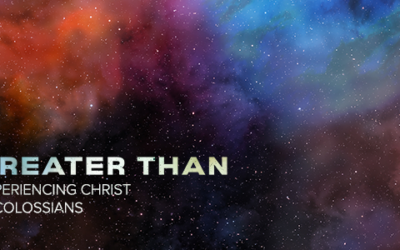Smashing Idols
Lisa Scheffler, author
Having spent some time in the United States, a visitor from another country wrote the following, “In America I saw the freest and most enlightened men placed in the happiest circumstances that the world affords, yet it seemed to me as if a cloud habitually hung upon their brow, and I thought them serious and almost sad, even in their pleasures.”
America, he said, was in the grip of a “strange melancholy” which often haunts free and prosperous people, even as they live in abundance.
The writer was Alexis DeTocqueville and he made these observations about America 190 years ago, in 1831. Not much has changed, has it?
While not everyone has experienced the liberty and prosperity of America equally, and there are plenty of inequities to address, the average person in this country enjoys a higher standard of living than the vast majority of people on earth. Yet, the “strange melancholy” persists. It may have even gotten worse. Anxiety, addiction, and loneliness are all on the rise.
We could name lots of causes for this melancholy. Many factors play a part, but these maladies are symptoms of an ailment that can be traced back to the Garden of Eden, when the Creator gave humanity a choice to live in communion with him, or go their own way. A choice to love and worship God and live according to his design, or reject his love, protection, and guidance and worship something else.
Perhaps the reason so many people are not experiencing joy and peace is because we are worshipping the wrong things. We are bowing down before idols.
For the next five weeks, we are going to expose some of the hidden idols of our modern world. We will consider the allegiance we’ve given the idols of success, alcohol and drugs, materialism, sex, and entertainment. We’ll heed the call of the ancient prophets of Israel, to tear down our idols, turn back to God, and worship him fully. No one but our Creator can satisfy our needs and bring us the joy, peace, and wholeness we are trying to find.
Together as the people of Christ Fellowship, let’s smash some idols and give all the glory to God!
Week 1 | Idolatry and Success
What was humanity’s original sin? If you read the account of humanity’s fall in Genesis, a pattern emerges that persists today. Disobedience fueled by pride leads to a rejection of God and his ways. The results are always catastrophic.
Human beings were designed to be worshippers — to commune with their Creator. We cannot move through this world without “gods” to rely on. Even people who would say they are not religious share this basic need to seek out an anchor in an unstable world. When the possibility of suffering lurks behind every corner, we will make sacrifices to that which promises safety. When our desires outgrow our circumstances, we’ll bring our offerings to the altar of “more” and “better.” Scared and restless, we will find a “god.”
This week, we’re going to first explore the concept of idolatry, and then consider the part our pride and desire for success play in driving us to false gods.
Day 1
What is an idol? Let’s start with a basic definition that we’ll flesh out throughout this series. From pastor and author, Tim Keller, an idol is “anything more important to you than God, anything that absorbs your heart and imagination more than God, anything you seek to give you what only God can give.”[1]
Keller is giving us a definition of “idol” that works for the modern as well as the ancient world. For people living thousands of years ago in a world they understood to be ruled by supernatural forces, an idol was a physical representation of a divine being that had power or authority in the human realm. You worshipped an idol to curry the god’s favor or prevent its wrath. Ancient and modern people turn to idols to satisfy needs God designed to be met by him.
Today, we’ll go to the Bible to get an overview of idolatry and what God has to say about it.
Read
Exodus 20:3-4
“You shall have no other gods before me. 4 “You shall not make for yourself an image in the form of anything in heaven above or on the earth beneath or in the waters below.
Leviticus 19:4
“ ‘Do not turn to idols or make metal gods for yourselves. I am the Lord your God.
Deuteronomy 12:1–3
These are the decrees and laws you must be careful to follow in the land that the Lord, the God of your ancestors, has given you to possess—as long as you live in the land. 2 Destroy completely all the places on the high mountains, on the hills and under every spreading tree, where the nations you are dispossessing worship their gods. 3 Break down their altars, smash their sacred stones and burn their Asherah poles in the fire; cut down the idols of their gods and wipe out their names from those places.
Ask yourself
- We defined “idol” above. Based on the verses you read, how would you define “idolatry”?
- What are God’s commands regarding idols?
- We’ll explore this idea throughout the series but record your initial thoughts. Why do you think people turn to idols rather than God?
Pray
As we start our series on idolatry, let’s begin the week with communal prayer. Let’s pray the following as a family of believers and as part of this church body.
Almighty God, Lord and Creator of all,
You alone are worthy of our worship. You created us for communion with you and desire for us to flourish inside your good and perfect will. You love us and through the death and resurrection of your Son, redeemed us from destruction. We are lost without you.
Yet, we confess that our hearts are often divided. We worship at the feet of the false gods of power, success, materialism, and pleasure. Draw us back to you. Give us eyes to see your glory and hearts that are ready to repent. Envelope us in your love. May we worship you alone.
It’s in the name of our beloved Savior, Jesus Christ, that we pray. Amen.
Talk about it
God placed us in a community with other believers for many reasons, and one of them is to learn from one another. We benefit from discussing God’s Word with others. The “talk about it” questions are good to answer on your own, but even better to discuss with someone else.
- Look back at Keller’s definition of an idol. What, in our modern world, might become an idol? How can a good thing become an idol if it’s used in ways or to degrees that God forbids?
- We’ll explore this question as the week goes on but talk through your initial response. Why do you think God is insistent that we have “no other gods” before him?
[1] Keller, Timothy. Counterfeit Gods: The Empty Promises of Money, Sex, and Power, and the Only Hope That Matters. New York: Riverhead Books, 2011. Print.


